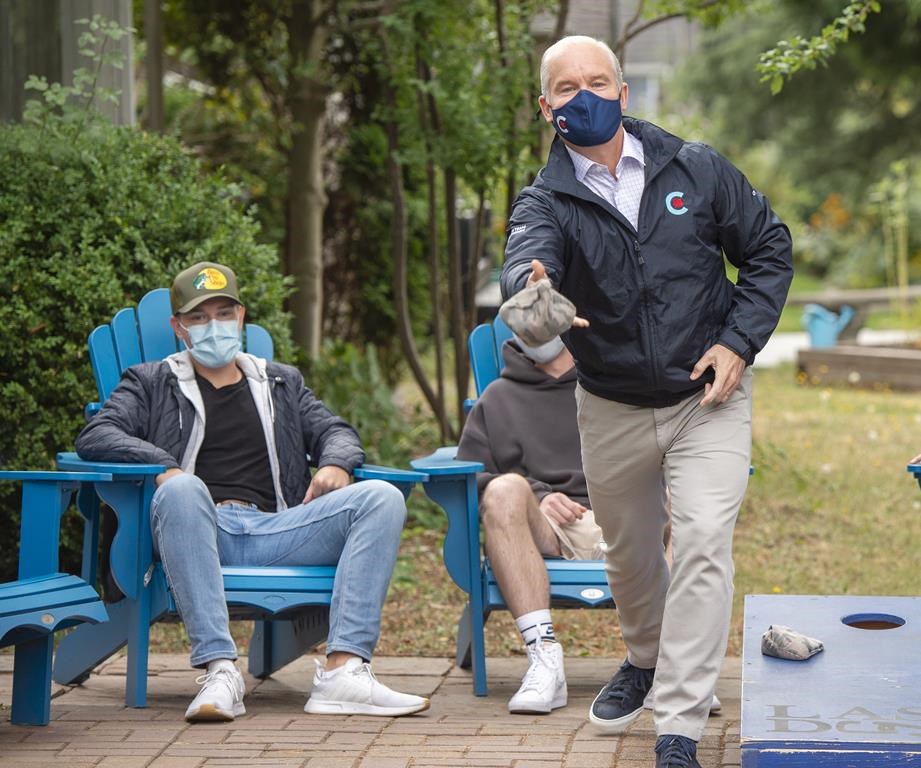OTTAWA – Conservative leader Erin O’Toole is refusing to pledge a more than 6% increase in health transfers, even if that number falls short of regional demands.
On Monday, Mr. O’Toole tried instead to convince François Legault and his peers that his stimulus plan would only inflate that 6% threshold.
Federal transfers are only increasing 3% annually at the moment.
Doubling that increase will not be enough to meet demand from provinces and territories that want Ottawa to pay 35% of the health bill, while at the moment the federal government covers only 22%.
With economic recovery and economic growth, we could get more than 6%. I said our number is the minimum now. But it is predictable, stable and unconditional”, said the Conservative leader. He insisted that “I will always respect the areas of provincial jurisdiction, including Quebec (…) and I will be there as a partner”, trying to stand out from his liberal and neo-democratic opponents.
Afterward, he indicated that he also wanted to spend federal money to respond to the opioid crisis as well as to improve mental health care.
By repeating his mantra of “partner rather than patriarch”, Mr O’Toole suggested that the provinces could privatize more health services if he became Prime Minister of Canada.
“I respect the provinces; the Tory leader replied to a reporter who asked him what privatization he would support in the Canadian health care system “Healthcare is their responsibility.” Mr. O’Toole completed his comment by reminding that the only health services that depend on Ottawa are those of First Nations and Veterans, The federal government “needs to do a much better job”.
“I fully support our universal and universal health system,” he said.
Workers and Indigenous Peoples
The Conservative Party leader also tried on Monday to seduce workers as well as Indigenous people, by promising to make progress on all of the “calls for action” contained in the Truth and Reconciliation Commission report.
Mr. O’Toole proposed that workers be represented on the boards of federally regulated companies that generate more than $100 million in annual revenue and employ more than 1,000 people. So boards must have at least one voting member representing workers from 2022. The Conservative Party estimates that this measure will apply to more than a hundred companies, particularly in the air and hydrocarbons sectors.
The pledge reflects Mr. O’Toole’s efforts to win over union members, as he promised after winning a leadership race a year ago. However, the Canadian Labor Congress has questioned how CEOs will be required to take such a step. For his part, the leader of the New Democratic Party, Jagmeet Singh, considered that Mr. O’Toole is not a “friend of Canadian workers”.
On Monday, Mr. O’Toole also noted his party’s commitment to Indigenous reconciliation and plans for the “calls for action” contained in the Truth and Reconciliation Commission report.
Many of the commission’s 94 calls to action are directed at the federal government, but the Conservative Party platform calls for implementation of only six specific items, which deal with children who died in boarding schools and the locations where they were found. they were buried. . When reminded on Monday, O’Toole said he would sit down with Indigenous leaders to develop an action plan and prioritize based on their needs.
He also attacked Justin Trudeau for promising too much of the commission’s recommendations without really following them.
Mr O’Toole gave his media outlet for the day on Monday in a studio set up by the Conservative Party in Ottawa. In the evening, he was scheduled to participate in two virtual assemblies of the voters of Ontario and Manitoba from there.

“Subtly charming problem solver. Extreme tv enthusiast. Web scholar. Evil beer expert. Music nerd. Food junkie.”

